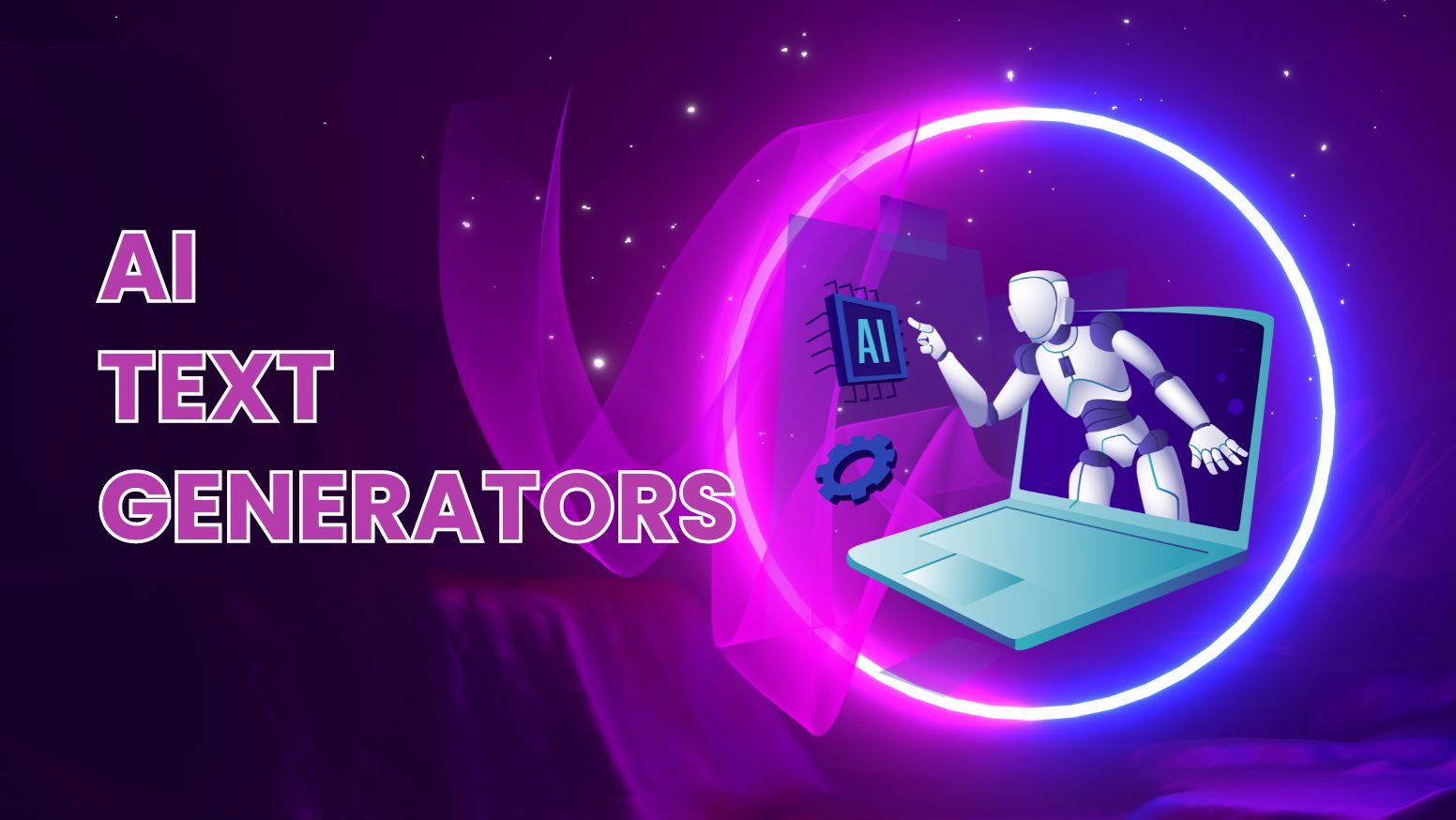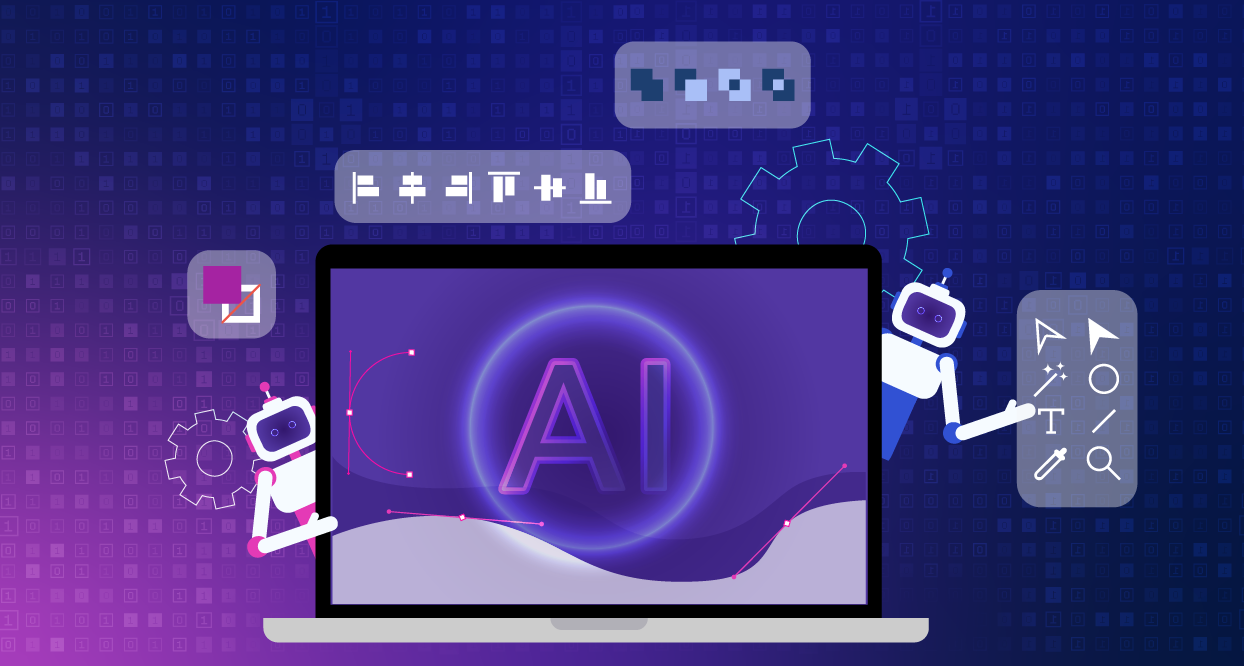AI Text Generators
In the rapidly evolving landscape of digital marketing, content creation plays a pivotal role in engaging audiences, attracting leads, and driving conversions. However, the process of generating high-quality content can be time-consuming and resource-intensive. This is where artificial intelligence (AI) comes into play, offering a transformative solution in the form of AI text generators.
The Basics of AI Text Generators: Understanding Capabilities and Limitations

What is an AI Text Generator?
An AI text generator is an advanced software tool that utilizes natural language processing (NLP) and machine learning (ML) algorithms to generate human-like text. These tools can produce a wide range of content, from blog posts and website copy to social media updates and marketing emails.
How Do AI Text Generators Work?
AI text generators typically operate on a three-stage process:
- Data Ingestion: The generator ingests a vast corpus of text data, ranging from books, articles, newsfeeds, and websites. This data serves as the foundation upon which the generator trains its language models.
- Language Modeling: The generator's language model analyzes the ingested data to identify patterns and relationships within the text. It learns the structure, grammar, and style of the language, enabling it to generate grammatically correct and semantically coherent text.
- Text Generation: Once the language model has been trained, the generator can start producing text based on the data it has analyzed. It uses a combination of statistical probabilities and user-defined parameters to generate text that is similar to the input data.
While the specifics may vary between different AI text generators, this general process remains consistent. However, it is essential to understand that AI text generators are not capable of true creativity or independent thought. They rely entirely on the data they have ingested and cannot generate original ideas or concepts.
Unlocking Creativity with AI Text Generators: Exploring Use Cases and Applications

Marketing and Advertising
One of the most significant use cases for AI text generators is in marketing and advertising. These tools can quickly generate large volumes of content, making them ideal for creating social media posts, email campaigns, and ad copy. For example, a clothing brand could use an AI text generator to create unique product descriptions for each item in their catalog, saving time and resources while still ensuring high-quality content.
Personalization and Audience Targeting
AI text generators can also be used to personalize content for specific audiences. By inputting data on demographics, interests, and behavior, the generator can produce tailored content that resonates with different target groups. This can significantly improve customer engagement and conversion rates.
Content Curation and Blogging
Another valuable application of AI text generators is in content curation and blogging. These tools can analyze a vast amount of data and generate summaries, reviews, and articles on specific topics. In addition, they can suggest new content ideas based on trending topics and keywords, helping bloggers and content creators stay ahead of the curve.
Empowering Human Authors: How AI Text Generators Enhance Content Creation

While some may fear that AI text generators will replace human writers, the reality is that they can enhance and empower human authors in several ways.
Time-Saving and Efficient
With AI text generators, writers can save a considerable amount of time on tedious tasks such as keyword research, topic ideation, and content creation. This allows them to focus on higher-level tasks such as strategy and creativity, resulting in better overall content quality.
Improved Consistency and Accuracy
Human writers are prone to errors, whether it's spelling mistakes, grammar issues, or inconsistencies in writing style. AI text generators, on the other hand, are programmed to be highly accurate and consistent in their output. This can be especially valuable for businesses that require a consistent brand voice across all their content.
Collaboration and Feedback
AI text generators can also collaborate with human writers, providing them with suggestions and feedback on their writing. For example, the generator could point out overused words or suggest alternative sentence structures. This can help writers improve their writing skills and create better content in the long run.
Ethical Considerations in AI Text Generation: Addressing Potential Biases and Ensuring Accuracy
While AI text generators offer many benefits, there are also ethical considerations that need to be addressed to ensure fair and accurate content creation.
Potential Biases in Training Data
One of the most significant concerns with AI text generation is the potential biases in the training data. If the data used to train the model is biased, the generated content may also reflect those biases. For example, if the training data includes more male voices than female voices, the generator may produce content that is more gender-biased.
To combat this issue, it is essential to carefully select and diversify the training data to ensure a balanced representation of different demographics and perspectives.
Accuracy and Fact-Checking
AI text generators rely on existing data to generate new content, which means they are not always able to fact-check or verify the accuracy of the information they produce. This can be problematic, especially when it comes to sensitive or controversial topics. It is crucial to have human oversight to ensure that the generated content is accurate and appropriate before publishing it.
The Future of AI Text Generators and the Impact on Content Creation

The use of AI text generators is likely to continue to grow in the future, as advancements in technology allow for even more sophisticated tools. Some experts predict that AI could eventually be used to generate entire books or movie scripts, while others envision a more collaborative approach between humans and AI in content creation.
Regardless of how it evolves, it is clear that AI text generators will continue to play a significant role in content creation, saving time and resources while enhancing the creativity and effectiveness of human writers.
Best Practices for Leveraging AI Text Generators Effectively: Tips and Techniques for Optimal Output
While AI text generators offer many benefits, there are also some best practices to keep in mind to ensure optimal results.
Choose the Right Tool for Your Needs
There are various AI text generators available, each with its own unique features, capabilities, and limitations. It is essential to evaluate your specific needs and requirements before selecting a tool that aligns with them. Some factors to consider include the types of content you need to generate, the level of customization and control you require, and your budget.
Train the Generator with High-Quality Data
The quality of your training data will directly impact the output of the AI text generator. It is crucial to use high-quality, diverse data from reputable sources to ensure accurate and unbiased content generation.
Provide Clear Instructions and Parameters
To get the most out of an AI text generator, it is essential to provide clear instructions and parameters for each task or project. This can include things like word count, tone and style guidelines, and keywords to include or avoid. The more specific and detailed your instructions, the better the generated content will align with your expectations.
Conclusion
AI text generators offer a powerful solution for businesses and individuals looking to streamline their content creation process and improve its quality. By understanding the basics of how these tools work, exploring their various use cases and applications, and following best practices, you can leverage AI text generators effectively to enhance your content marketing efforts. As technology continues to advance, we can expect AI text generators to become even more sophisticated and integral to the content creation process, ultimately benefiting both businesses and consumers alike.